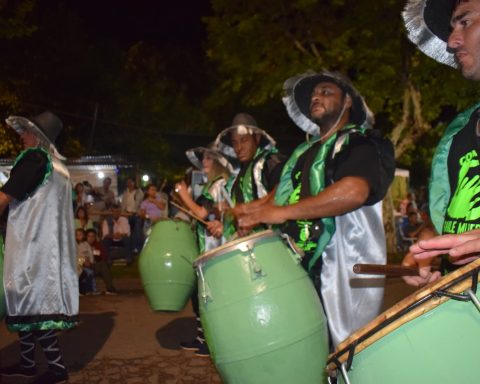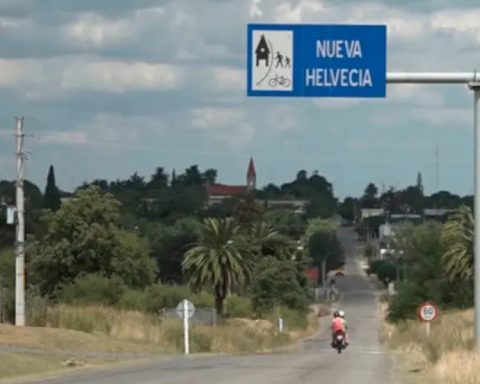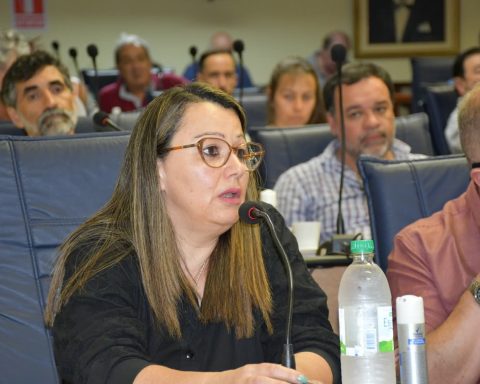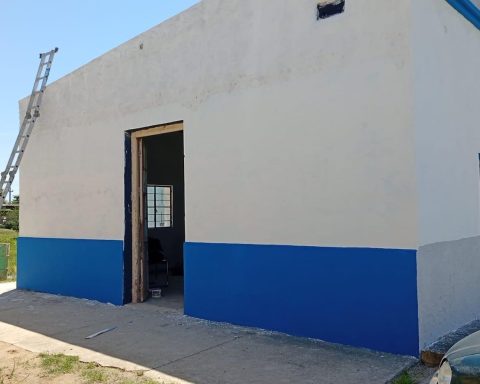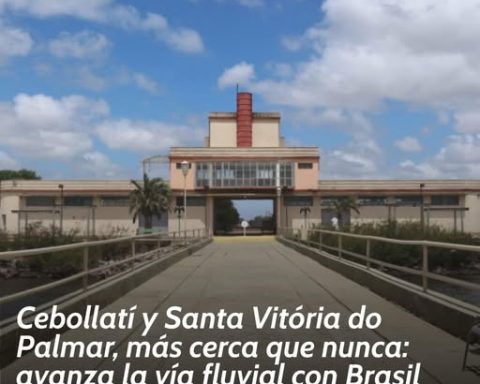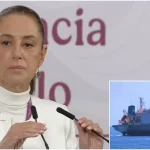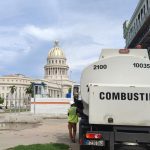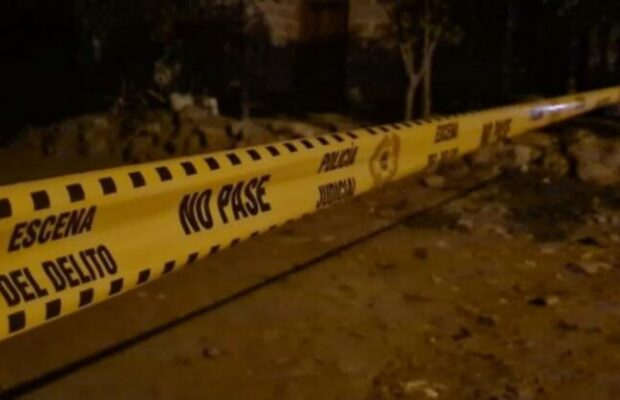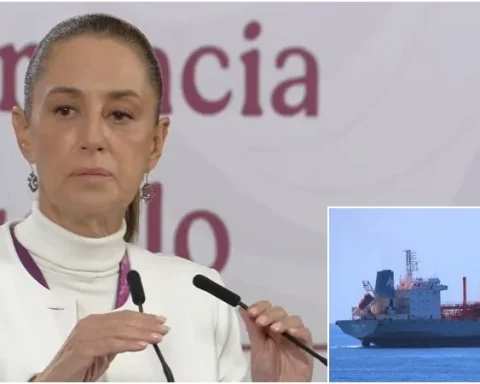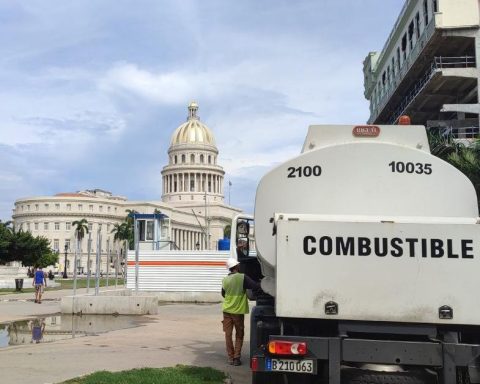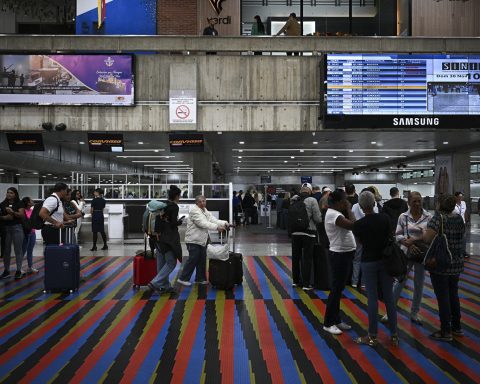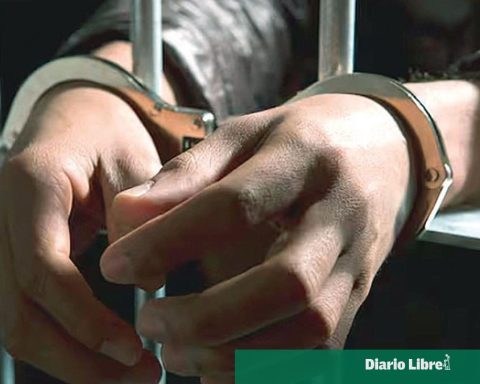This Tuesday, June 27, the 50th anniversary of the Coup d’état is commemorated, and for this reason there have been extraordinary sessions in Parliament; Acts, conferences, exhibitions and meetings were held that show us the importance of such a marked date in the life of Uruguay, and especially for the thousands of Uruguayans who suffered repression, persecution, jail, torture, exile, death…
With the background of the 50th anniversary of the Coup d’état that will be commemorated on June 27 in our country, EL ECO spoke with the lawyer and member of the Luz Ibarburu Observatory, Pablo Chargoñia.
Specialist in causes of crimes against humanity, Dr. Chargoñia with his words supported by national and international law, recalled the first prisoner for human rights violations after the dictatorship, who was a participant in the decision of the disappearance of Elena Quinteros . This is the former chancellor and former senator of the Colorado Party, Juan Carlos Blanco. Dr. Pablo Chargoñia also participated in the complaint against Blanco.
But these achievements do not change history, of a Justice that arrives late, late, and that biology makes impunity for many has been definitive. Many who committed crimes against humanity died without paying for the crimes committed.
–If you look back and see what the coup d’état was, what is the first thing you think of?
-The dimension that the State takes when it becomes a criminal organization. Because the crime committed by the State, unlike when it is done by individuals, transcends time, the wounds are transmitted from generation to generation, and it must be remembered that they are crimes committed from power and with impunity for it. And when the dictatorships end, and Latin America is proof of this, there are usually pacts or agreements that prevent the reborn democracies from investigating and punishing the violators of human rights. And when it is achieved, Justice is usually very late, very selective, inopportune, due to the delays in those agreements. Which can take various forms: In Uruguay it was called the Expiration Law of 1986, plus other elements that implied impunity for crimes.
“The first prosecution was former senator Juan Carlos Blanco, for the disappearance of Elena Quinteros”
-We still remember when General Hugo Medina, as Minister of Defense of the first government of Dr. Julio Ma. Sanguinetti, kept the summons from Justice to certain soldiers and kept them in his safe until the Law was voted in Parliament. of expiration.
-Yes, and many other things. In the first prosecution that took place, which was against Senator Juan Carlos Blanco, I intervened in that complaint as a lawyer for Tota Quinteros for the disappearance of the teacher Elena Quinteros (daughter of Tota).
As I was saying, the complaint had been filed before, against a person who was not covered by the Expiration Law, who was Chancellor of the dictatorship, Juan Carlos Blanco. He was not protected by the Expiration Law, and that complaint had been presented by Mariano Arana and other senators from the Broad Front in a minority, because Juan Carlos Blanco was a senator from the Colorado Party and a commission was formed when the information on the actions of the Foreign Ministry became known. in the disappearance of Elena Quinteros. At that time, Foreign Ministry manuscripts appeared, where they evaluated what to do with the person in clear reference to Elena Quinteros. At that time, the majority decided not to punish the senator, but the minority made up of the senators from the Frente Amplio filed a criminal complaint, but there was no process until we reactivated it in 2000 or 2001. I want to say that this is a clear example that indicates that impunity went beyond the Expiration Law.
Why was the complaint not processed?
-Because the prosecutor’s office did not investigate nor was the person investigated ever cited. We should have acted with a different attitude and there were changes, because after the prosecutor who did not act, the prosecutor Mirtha Guianze appeared, who began to play a leading role when she began to investigate honestly and Juan Carlos Blanco was first prosecuted in 2002.
“Children of political prisoners, they told me that they tried to protect their own children so that they would not suffer what their grandparents experienced”
-What changes occurred in Uruguayan society due to the coup?
-I believe that the work of the dictatorship, of the doctrine of national security had perverse effects. I remember that children of political prisoners told me that they tried to protect their own children so that they would not suffer what their grandparents experienced. In other words, the damage is transmitted from generation to generation, and one of the apparent effects, because the victims themselves say so, was the rejection of political commitment due to the negative effects it may have. In other words, the fear that transcends the very fact of torture and imprisonment in the 1970s, which is transmitted from generation to generation. It is a damage of State Terrorism. And this is a very bad thing for democratic life.
-But they partially succeeded, because now the Marches of Silence of Relatives and the causes of crimes against humanity are supported by the new generations.
-Yes, yes is true. One of the few massive causes in this country has to do with the resistance to the dictatorship and impunity that takes place every May 20 with the March of Silence, with a large presence of young generations demanding “Never Again State Terrorism”. ”.
“They continued to act as if they were political commissars, which is absolutely unacceptable in a democracy”
-What importance do these files have that were known last week?
-They are part of the archives of the experiments of what was the dictatorship in Uruguay. In our country there is a population of low numbers, and all Uruguayans were categorized based on their political and ideological profile by military and police intelligence agencies. That is why data appear that can be considered banal, which are part of the investigation of a State that got into each one of the people. It is also notorious that these registries continued to operate beyond 1985, even more until 2004. Which means that there were military-police intelligence apparatuses that were never adequately controlled by the civilian command or the civilian command allowed them to continue operating as if they were political commissars, which is absolutely unacceptable in a democracy.
-But, why did these files appear now?
-That is speculative, and it does not seem to me that it is fertile to debate about why. But I do believe that the focus should be placed on the duty of the State to produce information from these documents, which is useful for the democratic quality of the country. What do I mean? Allow these documents to be studied by scientists, by historians, academia, to be processed and worked on by the criminal control system to enrich criminal trials with evidence, and to be looked at by the state institution in charge of investigating the enforced disappearances, which is the National Institute of Human Rights. It must be clear that this is not a collection of documents, but that they contribute to historical memory, to the advancement of criminal trials and to finding the missing victims. That task is missing.

Doctor Pablo Chargonia
-How many causes does the Luz Ibarburu Observatory have?
-We sponsored 60 criminal complaints involving 300 victims.
-And how many soldiers?
-That is very difficult to identify because each file involves investigating the military, police or civilians, and the quality of being investigated arises every time there is some element that allows the prosecution to maintain that they could have a responsibility. Therefore, it is an open list. In any case, the Observatory does a survey of the people prosecuted, and we have 55 prosecuted and/or convicted, and there were 20 who have died. It is the number of serious human rights violations that are subject to criminal proceedings.
They don’t seem too many…
-It is an exempt number if we compare it with the number of officials who must have operated within the framework of the State Terrorism that acted in our country. This is a difficulty, in this country or in any other, to hold criminally responsible when the crime is committed by State officials. In fact, reviewing some documents that appeared in 1985, they speak of some 300 identified human rights violators. And how were they identified? Because during the dictatorship and at its end, Ielsur, Serpaj, the Bar Association, exiles, human rights organizations, identified people who had violated human rights. And if we take into account those 300 at 55 (plus the 20 who died) there is a selection process that is one of the perversities of the impunity system, because Justice is reached so late that for biological and political reasons , impunity is definitive, they were never tried.
Before, the Cabildo Abierto projects “were more ambitious” to benefit the military
-In this framework, how much does the Cabildo Abierto articulate in this matter?
-I believe that the project of Cabildo Abierto of home prison to military of the dictatorship, is a reaction of the advances, timid, but advances at last, of the Justice. Because it is not the first project of Cabildo Abierto. The previous ones were more ambitious, from the point of view of impunity; They sought the restoration of the Expiration Law or the restoration of the prescription so that all the debates would end and the cases would be archived. They didn’t make it to that. And that indicates that there is a stimulating jurisprudential trend, interesting from the point of view of human rights, for not archiving these cases and even in the last rulings we have had convictions based on international law, that is, a more advanced reflection. There are judges who continue to advance despite the fact that the Uruguayan criminal justice system has certain internal debates, but the cases are advancing. And before this, the only possible reaction that Cabildo Abierto finds is to neutralize the sanction that they cannot avoid through house arrest.
-And how are the cases of Vladimir Roslik denounced by María Cristina Zavalking and her son and that of Susana Zanonian?
-They are in the Supreme Court of Justice, very delayed. And one warns that despite the valuable work of the Office of the Special Prosecutor for Crimes against Humanity, the truth is that it is the only one at the national level. And he has to go to successive trials. But that trial in Fray Bentos will take place with these causes, there are many defendants, and one hopes that there will be an oral and public trial, and according to my opinion, it will be very important to describe the phenomenon of State Terrorism in the cities of the interior .

